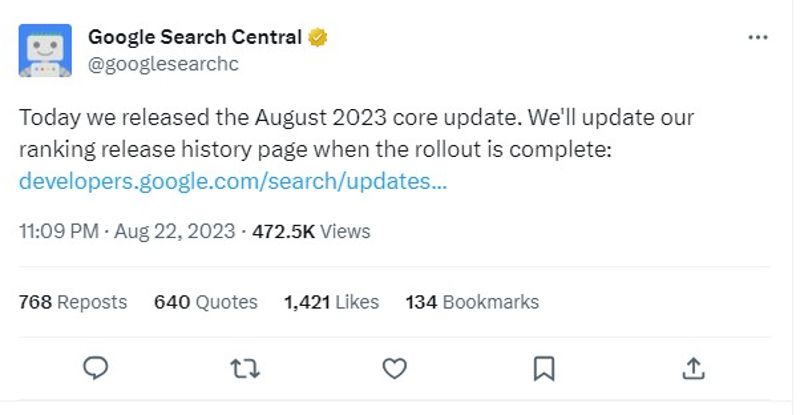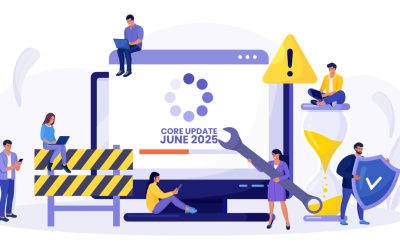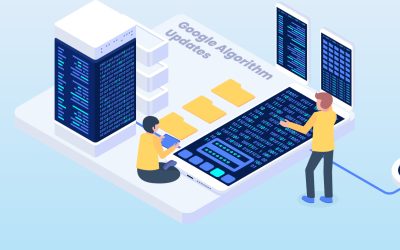Google officially released their August 2023 broad core update on August 22nd, 2023. The rollout may take up to 2 weeks to complete. This marks the second comprehensive core update for the year, following the initial release in March 2023. The March 2023 core update started rolling out on March 15 and completed on March 28.

Google Has Completed Rolling Out Their August 2023 Core Update
Google has officially announced that they have completed rolling out the August 2023 Core Update, the second core update of the year. The update commenced on August 22, 2023 and completed rolling out on September 7, 2023. Google Search Status Dashboard shows that this core update took 16 days and three hours to roll out fully.
This core update encompasses various content types and isn’t punitive; instead, it aims to highlight and reward exceptional web pages. It’s a worldwide update that affects all regions and languages. Google consistently issues core updates to ensure that users always receive the most relevant and dependable search results.
Providers of professional digital marketing services in New York keenly stay abreast with such updates, and keep an eye on your website’s analytics and rankings.
About Google Core Updates
Google’s core updates are designed to ensure that overall, the company is delivering on their mission to present helpful and reliable results for searchers. Google says that there is no inherent issue with pages that might experience diminished performance following a core update. These pages have not breached Google’s spam guidelines or faced manual or algorithmic penalties, unlike pages that do violate such rules. In essence, core updates do not single out particular pages or websites. Instead, the alterations are geared towards enhancing the holistic evaluation of content. These adjustments might result in improved search outcomes for pages that were previously receiving lower recognition.
To clarify, pages that undergo modifications following a core update are not inherently flawed and don’t require specific fixes. The search engine giant recommends placing emphasis on delivering the best possible content. This aligns with what the algorithms aim to recognize and reward.
Recovery after Update
Google explains that broad core updates typically occur every few months. If your content in search was affected by one of these updates, it might not see a recovery, even if improvements have been implemented, until the subsequent broad core update is rolled out. Google’s systems prioritize content that deserves to rank well, so if more deserving content is available, it will continue to perform strongly.
In order to enhance your search performance following a core update, Google provides the following recommendations: Examine pages that are experiencing suboptimal performance, analyze the search terms that led users to those pages, and compare your content against the questions outlined on Google’s help page. These steps can help you align your content with user intent and improve your overall search visibility.
Content Self-assessment
Google has provided some questions for businesses to self-assess their content. Those questions include:
Content and quality questions
- Does the content provide original information, reporting, research, or analysis?
- Does the content provide a substantial, complete, or comprehensive description of the topic?
- Does the content provide insightful analysis or interesting information that is beyond the obvious?
- If the content draws on other sources, does it avoid simply copying or rewriting those sources, and instead provide substantial additional value and originality?
- Does the main heading or page title provide a descriptive, helpful summary of the content?
- Does the main heading or page title avoid exaggerating or being shocking in nature?
- Is this the sort of page you’d want to bookmark, share with a friend, or recommend?
- Would you expect to see this content in or referenced by a printed magazine, encyclopedia, or book?
- Does the content provide substantial value when compared to other pages in search results?
- Does the content have any spelling or stylistic issues?
- Is the content produced well, or does it appear sloppy or hastily produced?
- Is the content mass-produced by or outsourced to a large number of creators, or spread across a large network of sites, so that individual pages or sites don’t get as much attention or care?
Expertise questions
- Does the content present information in a way that makes you want to trust it, such as clear sourcing, evidence of the expertise involved, background about the author or the site that publishes it, such as through links to an author page or a site’s About page?
- If someone researched the site producing the content, would they come away with an impression that it is well-trusted or widely-recognized as an authority on its topic?
- Is this content written by an expert or enthusiast who demonstrably knows the topic well?
- Does the content have any easily-verified factual errors?
As Google is constantly making updates to the search algorithms, it is crucial for businesses to stay up to date with the changes. Although these core updates aren’t intended to focus on particular websites or pages, they might lead to increased visibility for pages that were previously ranked lower. Conversely, pages that were once highly ranked might experience a decline in their positions.




